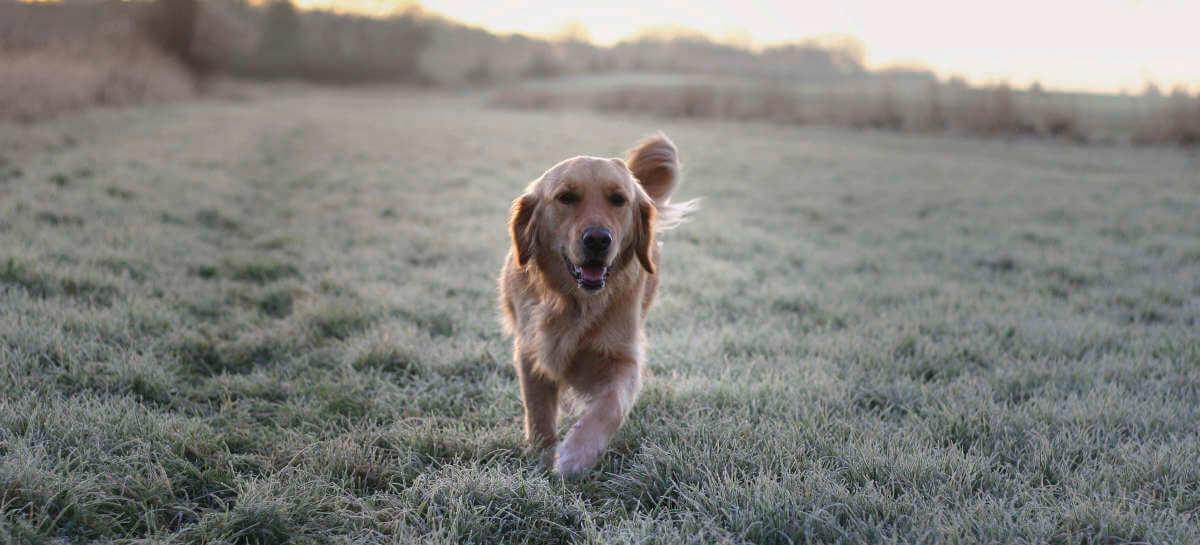
Winter is a time of grey, chilly weather drifting towards us, and ensuring our pets stay safe and warm becomes extremely important during this season. Dogs in particular need their walks and outdoor activity to be managed more closely, so they don’t get too cold and suffer as a result.
Your dog’s winter coat should be carefully maintained as well, giving them the protection they need against against the elements. James Wellbeloved provides welcome dog winter coat advice, as well as some extra tips to help you and your pet prepare for when the days turn colder.
DOG WINTER COAT GUIDANCE
Looking after your dog’s coat is key throughout the year, but the stakes are especially high over winter, when they’re more likely to trek in dirt and debris from outside. The good news is, a few simple dog winter coat tips under your belt is all it takes to keep your dog happy and comfortable no matter how low the temperature drops:
First, find a space in your home for grooming – preferably somewhere spacious and easy to clean.
Next, establish an effective brushing routine – this will depend on the length and thickness of your dog’s coat, but at least once a day during winter should be fine for long-coated dogs, and at least twice a week for short-coated dogs.
Choose your dog’s brushes wisely – different coats need different tools: short ones benefit from rubber and bristle textures, whereas longer fur requires slicker material to gently remove knots.
Don’t forget the tail and paws!
And finally… Plan bath time well – every six to eight weeks using a pet-friendly shampoo should be sufficient. In between baths, you can rinse your pet with water to remove excess dirt.
A strong dog winter coat routine will not only help protect your pet from the winter chill but also work to keep their coat shiny and healthy.
DOGS AND SNOW
Every dog is different, and some dogs like snow. Playing in it, rolling around in it, jumping in and out of it – there are certain dogs that just can’t get enough. However, in winter, you must be cautious about how long you’re letting your dog enjoy the white stuff. Remember, puppies and senior dogs alike often have a tough time regulating their body temperature, and if your dog has a thin winter coat, this will affect how long they can stand lower temperatures.
As a rule, bear in mind that if it’s too cold for you, it’s probably too cold for your dog as well. Of course, when in doubt it’s always best to double-check with a vet – just in case.
PAW PROTECTION FOR DOGS DURING WINTER
A dog’s paws can be particularly sensitive to cold weather. As such, it’s your responsibility to ensure they’re well cared for during winter. This includes:
Always carrying around a towel – regular wipe-downs will help fend off the accumulation of potentially harmful residue picked up while out and about
Checking for salt and grit between their toes
Keeping walks short
Paw protection for dogs in winter doesn’t have to be complicated. Simply spare a thought for their paws when the two of you are out walking, and if you’re at all concerned, please contact your vet for more advice.
PET CARE TIPS FOR WHEN IT’S COLD OUTSIDE
The cold weather in winter presents a unique challenge to dog owners, as extra precautions must be taken to ensure their safety. These include:
Sticking to well-lit areas on walks, preferably those with minimal traffic, and making sure you wear bright/reflective clothes when taking your dog out during the dark evenings
Keeping a torch handy, as the light can fade pretty fast in wintertime
Trimming the hair around your dog’s paws to help prevent ice-balls, which form between the pads and toes and can be really painful for them
Not letting your dog walk on frozen bodies of water, like lakes or ponds – the ice may not support their weight
Storing antifreeze well out of reach – it’s deadly to dogs but some find it delicious
If you have any serious safety concerns for your dog during winter, you should contact your local vet as soon as possible to discuss them further.
We know the cold weather can make things difficult when it comes to caring for your dog, but hopefully our dog winter coat advice and other cold-weather tips give you and your pooch the chance to stay warm and safe as the nights draw in. And, if you feel that your dog might need some extra support during this time, talk to your vet.

Related Articles








